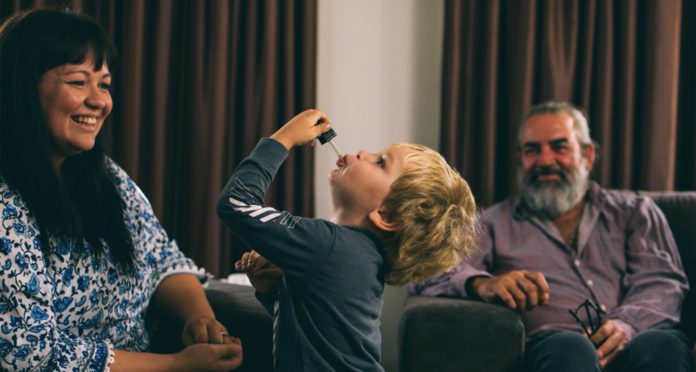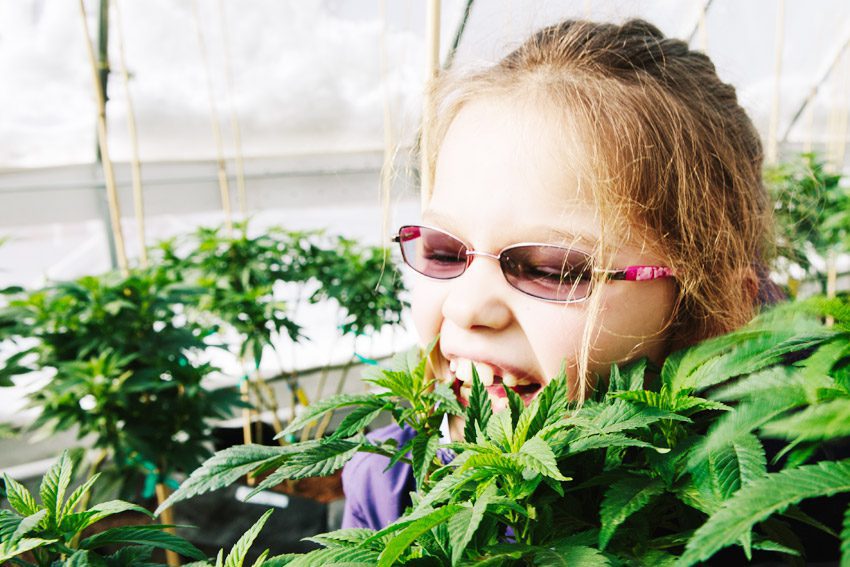Cannabidiol (better known as CBD) has truly come into its own as an alternative medicine. With a host of now-proven medical uses, it seems as if these products are not just a passing trend. In spite of this, many people still associate the use of CBD with illegal Marijuana smoking. This state of affairs is not surprising after decades of anti-cannabis propaganda. That’s why many people are still nervous about the idea of giving CBD to children. Let’s explore this sensitive topic a little more.
Differences Between Hemp And Marijuana
As you may know, Hemp and Marijuana are technically the same species. Both are classified as Cannabis Sativa or Cannabis Indica, but they aren’t as similar as you might think. The difference is that Marijuana is primarily cultivated for its THC. THC (Delta-9 Tetrahydrocannabinol) is responsible for the mind-altering effects for which this plant is famous.
Hemp, on the other hand, is grown for either fibers or CBD. That means that these strains have been selectively bred for maximum CBD content. Obviously, you want to avoid industrial Hemp unless you’re planning to make some shirts and pants. That kind of Hemp is mostly used for cloth production and will contain relatively little CBD.
All of this comes down to one thing: CBD is one of the non-psychoactive parts of the Cannabis plant, so it definitely won’t get your child high. Thus, there is no reason to get hung up about the optics of giving cannabinoids to a child.
A Good Alternative To Child Psychiatry
CBD oil, along with all other CBD-based medications, can be a great way to control hyperactivity, lack of attentiveness, and a whole bunch of other common childhood issues. Unfortunately, society tends to encourage psychiatric/psychological treatment for young people with mental problems. In many cases, these people do more harm than good.
Child psychiatrists will often prescribe medications that are just watered-down versions of street drugs. For instance, consider two medications called Ritalin and Adderall. Both of these are commonly prescribed for ADD and other frequently-diagnosed childhood mental disorders. Both of them are basically “kiddy meth.” You might think that’s an exaggeration, but it’s not: Both of these drugs are classified as amphetamines, making them close relatives of methamphetamine. When compared to that garbage, CBD looks quite wholesome and safe.
Although we don’t want to indulge in conspiracy theories, this makes an evil kind of sense. If you are a child psychiatrist, your money comes from exploiting the behavioral issues of children. Thus, it is in the psychiatrists’ financial interest to induce those mental problems deliberately. So, if you wanted to cause behavioral problems in a child, slipping them a hardcore stimulant would seem like an obvious way to do that.
CBD Side Effects
Although CBD has proven to be quite safe, there are some side effects that can result from overuse. Obviously, these need to be taken into account when deciding whether or not CBD is an appropriate remedy for your child. That being said, these side effects are quite mild when compared to most prescription medications. Just read the fine print on the next drug commercial that you see, and you will see far worse things than these. Common CBD side effects include:
- Dry mouth
- Diarrhea
- Fatigue
- Reduced appetite
- Drowsiness
The first of these can be remedied with a glass of water, while the fatigue and drowsiness aren’t likely to cause anything more serious than a nap. The reduced appetite can actually be a good thing for those who want to lose weight, and the diarrhea factor (when it occurs) is said to be very short-lived.
That being said, we should also look into one of the claims that we have heard. Some sources say that CBD can damage your liver over time, so let’s look for some evidence. Most of the stories about this are based on a single study from last year. However, we believe this study to be flawed.
If you look closely, you can see that the researchers did not use pure organic CBD oil like the one from stirlingcbdoil.com. Instead, they used Epidiolex, a CBD-based drug that has been approved for the treatment of seizures. If you look at the ingredients list for Epidiolex, you will see that it also contains alcohol, which is notorious for its negative effects on the liver. It contains a few other weird and non-essential ingredients, and these are far more likely to be the issue. Still, as a precaution, we would recommend that you limit CBD dosage in children. Give them about half of what an adult would take, and they should be fine. It never hurt to be a little too careful.
Conclusion
As you can see, there is really no reason to worry about giving CBD oil to a child. It is not going to get them high, and it might prove to be very helpful. In fact, when we compare CBD with many of the other medications that are routinely prescribed to children, it seems very safe indeed. We thank you for reading, and we hope that you learned something.

